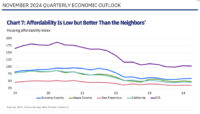In 1979, as OPEC embargoed Middle Eastern oil, the price of gasoline rose 52 percent, groceries rose 9.5 percent, Citibank’s prime rate was over 15 percent and inflation rose 13.3 percent. Unemployment, meanwhile, was nine percent and the American economy became the solemn soundtrack to what was widely described as a national malaise.
The thirty-ninth President of the United States was a peanut farmer and one-term governor from Georgia who was improbably elected to the nation’s highest office in the ragged aftermath of Watergate and in the lingering shadow of Richard Nixon’s cynically dishonest presidency.
Jimmy Carter was a modest man. Modest in stature, demeanor and voice. But compared to both previous and later presidents, he was a giant of integrity.
“I will never lie to you,” he promised the American public. And by all accounts, he never did. His honesty compelled him to make perhaps the most painfully honest public speech ever voiced by an American President.
In a 1979 address, Carter declared that the American people were facing a crisis of confidence that “strikes at the heart and soul of our national will. We can see this crisis in the growing doubt of the meaning of our own lives and in the loss of unity and purpose as a Nation. The erosion of confidence in the future is threatening to destroy the social and political fabric of the nation.”
Carter stated that polls reveal, “A majority of our people believe that the next five years will be worse than the past five years. Two-thirds of our people do not even vote.”
For most presidents, those words would be political heresy, a confession of abject failure.
At the time, I was the co-owner and editor of a weekly newspaper in Santa Rosa. It was a large weekly, with a hundred-year history, but nothing remotely significant enough to warrant the attention of Carter’s press secretary Jody Powell. But that didn’t stop me from sending Powell a telegram stating that if I were Walter Cronkite I could have a one-on-one interview with the president, but I wasn’t so I couldn’t and that was wrong.
To my surprise, Powell wrote me back saying, “You’re right, you aren’t, and you can’t, but there might be a future possibility because the President wants to reach outside the Beltway to engage with community journalists.”
A few months went by, the “crisis of confidence” speech happened, I forgot about the interview, and then a telegram arrived from the White House requesting all the personal data needed for a Secret Service clearance. So I announced to our 52,000 readers that I was going to meet the president, I wanted to take them with me, please send me your questions. The questions they sent filled about 12, single-spaced typewritten pages.
My one-on-one did not happen, of course, but I was one of some 20 reporters who met with Powell, and then with two cabinet secretaries, before filing into the White House and taking seats at the huge oval table in the Cabinet Room (the same room where Speaker Nancy Pelosi stood up and walked out on President Trump).
Carter came in and took a seat at the end of the table (presidents usually sit in the middle) made some opening remarks and then asked us what we wanted to ask him. Pack reporters are a little like feeding sharks; the meek are elbowed away. I had worked on Capitol Hill and covered numerous committee hearings, and I have a loud voice, so early on I asked my key question.
“Mr. President,” I said, “can you please address your thoughts on the national crisis of confidence you described to the nation and why this isn’t also a crisis in leadership?”
Jimmy Carter smiled. He did not get defensive, he said it was “a very good and appropriate question,” and then for some five minutes he thoughtfully reflected on the myriad issues, complications, challenges and even mistakes that led us all to this moment in time. It was an impressive, thoughtful, open and honest response.
When the Q&A was done and I had the opportunity to shake his hand, I explained that I came bearing questions from my readers who would love to get answers. I handed him the 12 single-spaced pages and he said, “We’ll do our best.”
Roughly two weeks later I received a fat folder in the mail from Jody Powell’s office, containing answers to virtually every question I handed President Carter. I was astounded. He obviously didn’t read them himself, but someone did, and prepared a lot of answers. Most of which very soon appeared in my newspaper.
Jimmy Carter has been misjudged during his lengthy lifetime but the developing consensus is that he is among the top ten tier of great presidents. Among his notable achievements: The Camp David Accords that brokered peace between Egypt and Israel: Making Human Rights a cornerstone of foreign policy: Negotiating the Panama Canal treaties that returned control to Panama: Establishing the Department of Energy and helping establish the Department of Education: Formally recognizing the Republic of China: Dramatically expanding national parks: relentlessly negotiating release of the U.S. Embassy hostages in Iran: Never going to war: Decades of humanitarian work promoting public health, democracy and peace through the Carter Center: And being one of America’s most honest presidents.






Be First to Comment